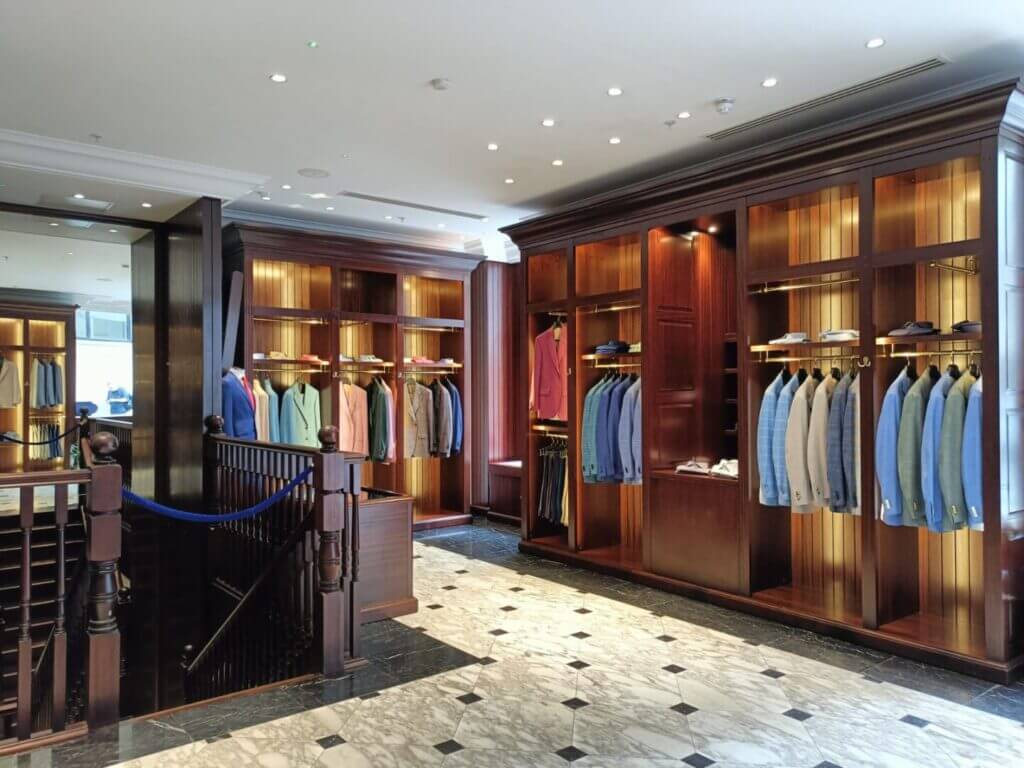In the heart of Atri, a picturesque town cradled in the hills of Abruzzo, Italy, Sartoria Dei Duchi conserves the region’s suit-making heritage. Founder Piero Pavone divulges the brand’s history, their path to expansion, and why they aren’t afraid of work-from-home suiting naysayers.
Sartoria Dei Duchi, Atri, and Dukedom
Italian tailoring brand Sartoria Dei Duchi (SDD) knows how to make a man look good–it’s in their genome. But to understand why SDD is immune to the young shopper’s affinity to off-the-rack suits, examining SDD’s rich bloodline is a must.
The brand’s journey begins in Atri, the hilly comune of Italy’s central Abruzzo region. The House of Acquaviva, onetime rulers of the Abruzzese town, was among the several families of Naples royalty. Their clothes were fine, and they spent lavishly on them. Their indulgence in custom apparel founded the region’s sartorial identity, where many skilled tailors honed their craft. Piero Pavone, influenced by Atri’s rich history and its longstanding tradition, envisioned a brand that not only revered its past but also adapted to the evolving landscape of fashion.

Speaking with Piero Pavone, one quickly understands his deep reverence for the art of suit making. “Italian tailoring is not just about creating garments; it’s about preserving a history of elegance and quality,” Pavone explains. “At Sartoria Dei Duchi, we’re not just making suits; we’re crafting a legacy.”
Italy as a stronghold of men’s formalwear is no secret. Kiton, Zegna, and D’Avenza are totems of the country’s sartorial representation, but as the consumer continues to vote for ready-to-wear, the atelier’s assortments adapt in suit.
Brioni, once one of Italy’s most in-demand labels for tailor-made apparel, got lost in the shuffle of Kering’s enormous portfolio after being acquired in 2011. The conglomerate laid off almost 320 jobs under the label and closed three of its plants in 2021, one of which in Abruzzo.

Many of these craftsmen, formerly with Brioni, bring decades of experience to the SDD. “Our team consists of masters in their craft. Their experience is invaluable, and their transition to our atelier has only enriched the quality of our suits,” Pavone notes. This melding of experiences and skills has been pivotal in evolving the brand’s designs while maintaining its core values of quality and craftsmanship.
A consequence of mass-market suiting, arguably an inevitable one, is the erosion of material quality. Big fashion houses continue to grow their retail footprint while expanding their sales channels into luxury department stores, and they’ve resorted to high-volume fabrics that are readily available and inexpensive.
Central to the brand’s ethos is the selection of premium fabrics. “Quality begins with the right materials,” Pavone states. “We source from the finest, like Loro Piana and Piacenza, ensuring that each garment is not only luxurious but also durable.” This commitment to quality materials is a testament to the brand’s dedication to offering the best to its clients.

The absence of personality in bespoke suiting is unignorable. Men used to visit their go-to tailor, perhaps that of their father and the ancestor before him. It was a lifelong relationship–having a suit outfitted for each major life event from the same hands. Brands such as Suitsupply have commodified this ritual, and clients are held to the designs within each seasonal collection.
Pavone emphasizes the importance of a personalized approach in suit making. “The suit should be an extension of the individual, tailored not just to their measurements but to their personality,” he asserts. This philosophy is at the core of Sartoria Dei Duchi’s bespoke service, where each suit is a reflection of the wearer’s persona.
Sartoria Dei Duchi stands at a crossroads where traditional craftsmanship meets modern demands. With the changing tides in mind, SDD expanded their offerings, catering to modern shopping trends while being able to propagate the label.
Pavone discusses the changing landscape of fashion and how the brand adapts. “While we uphold the traditions of Italian tailoring, we also recognize the modern consumer’s needs,” he says. This acknowledgment led to the introduction of a ready-to-wear collection, designed to offer the flexibility and immediacy that modern customers often seek.
“This is precisely why we’ve decided to introduce a ready-to-wear collection,” Pavone explains. “For someone purchasing their first suit, opting for bespoke can be a significant investment. Our ready-to-wear collection, made on-site, offers the flexibility to be tailored to the individual’s body, allowing customers to experience the fit and feel of our suits.”
From Atri to the world, Sartoria Dei Duchi has expanded its presence globally, with flagships in London and Dubai and planned openings in Singapore and Saudi Arabia. Each location offers a curated selection of suits, shirts, accessories, and shoes, all embodying the brand’s commitment to quality. “Our global expansion is a response to the growing appreciation for Italian craftsmanship around the world,” says Pavone.

Looking forward, Pavone envisions a brand that continues to honor its heritage while embracing innovation. “We will continue to innovate, ensuring that our traditions evolve with the times,” he says. “Our goal is to keep the art of Italian tailoring alive, making it relevant for today’s and tomorrow’s generations.”
In a world where trends come and go, Sartoria Dei Duchi stands as the hopeful torchbearer of Italian suiting. As Pavone puts it, “We are not just creating suits; we are crafting a legacy that speaks of elegance, quality, and an unyielding commitment to the art of Italian tailoring.”
Save Article










